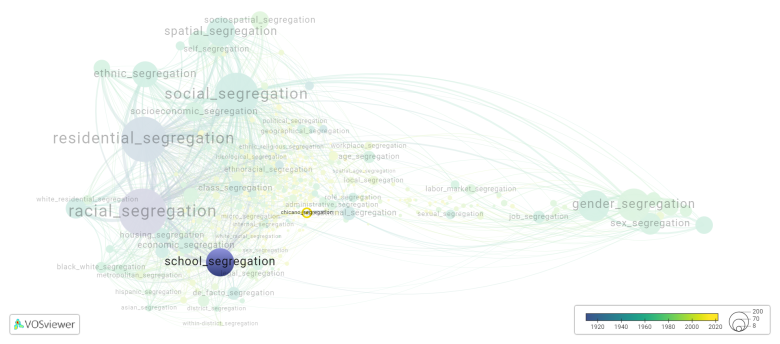Chicano segregation
Date and country of first publication[1]
2022
United States
Definition
Chicano segregation refers to the historical discrimination and separation faced by Mexican-Americans, also known as Chicanos, in the United States. This segregation can be traced back to the 19th century, when the US acquired large portions of Mexican territory after the Mexican-American War. The Treaty of Guadalupe Hidalgo, which ended the war in 1848, guaranteed the rights and protection of Mexicans living in these newly acquired territories. However, despite these protections, Chicanos faced systematic discrimination and segregation in various aspects of life.
One prominent form of segregation was in education. Chicanos were often forced to attend segregated schools that provided unequal resources and opportunities compared to their white counterparts. This segregation limited their access to quality education, perpetuating cycles of poverty and limited social mobility.
Chicanos also faced housing segregation, as they were often confined to specific neighborhoods or barrios, with limited access to housing in other areas. Discriminatory housing practices, such as redlining, which denied loans and mortgages to minority communities, further exacerbated segregation and limited economic opportunities for Chicanos.
In addition, Chicanos experienced social segregation, particularly in public spaces, such as restaurants, movie theaters, and swimming pools, where they were often subject to explicit racial discrimination and exclusion. This restricted their access to public amenities and reinforced a sense of marginalization and inferiority.
Throughout the 20th century, various civil rights movements, such as the Chicano Movement, emerged to challenge these forms of segregation and fight for equality, social justice, and civil rights for Mexican-Americans. These movements resulted in significant advancements in reducing segregation and discrimination, although the effects of segregation can still be seen in some communities today.
See also
Related segregation forms
Chicano segregation is frequently discussed in the literature with the following segregation forms:
This visualization is based on the study The Multidisciplinary Landscape of Segregation Research.
For the complete network of interrelated segregation forms, please refer to:
References
Notes
- ↑ Date and country of first publication as informed by the Scopus database (December 2023).
Chicano segregation appears in the following literature
Donoto R., Menchaca M., Valencia R.R. (2022). Segregation, Desegregation, and Integration of Chicano Students: Problems and Prospects. Interdisciplinary Perspectives on the New Immigration: Volume 5: The New Immigrant and American Schools, 5(), 141-178. Taylor and Francis.https://doi.org/10.4324/9781315054216-7

